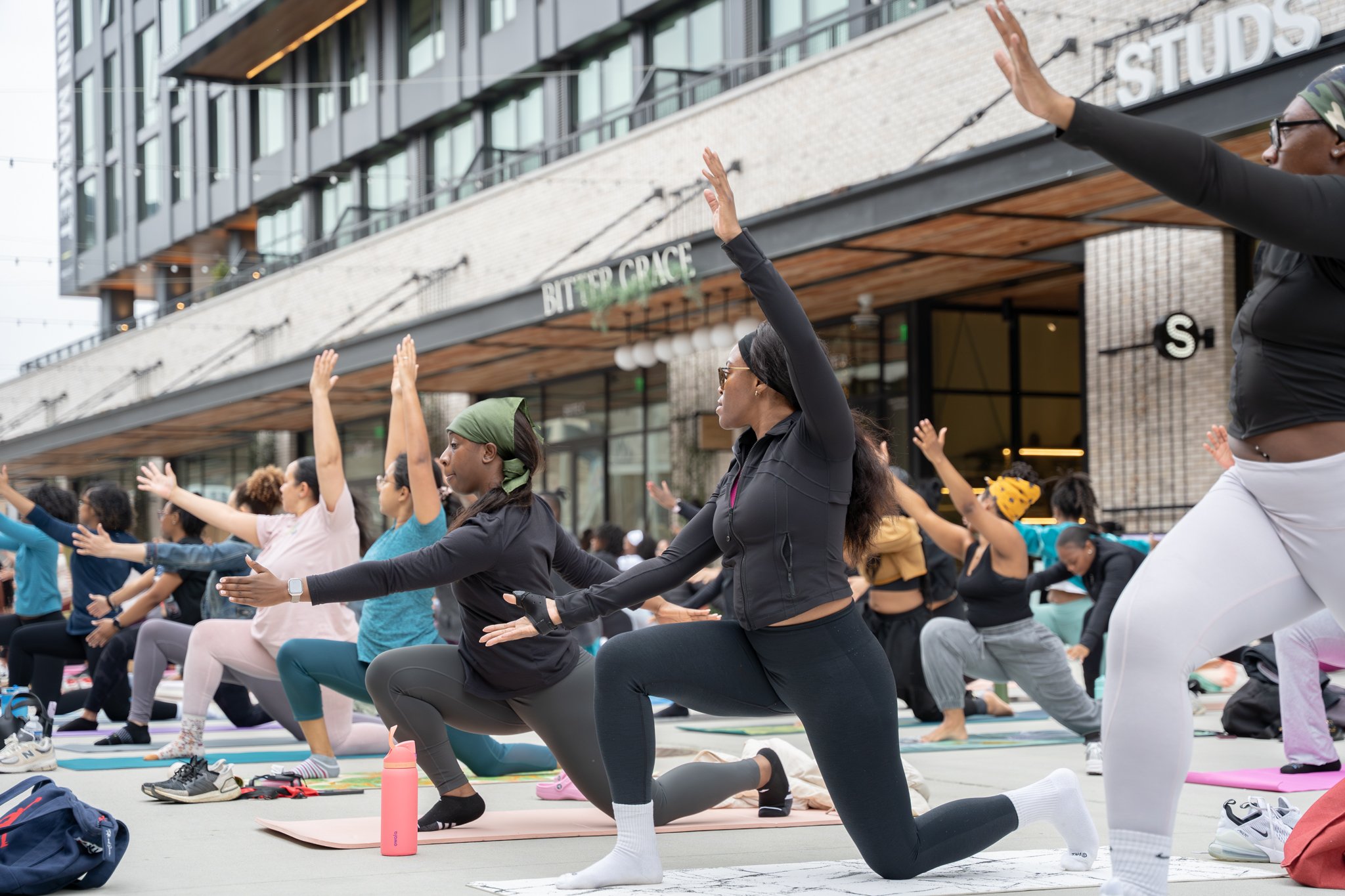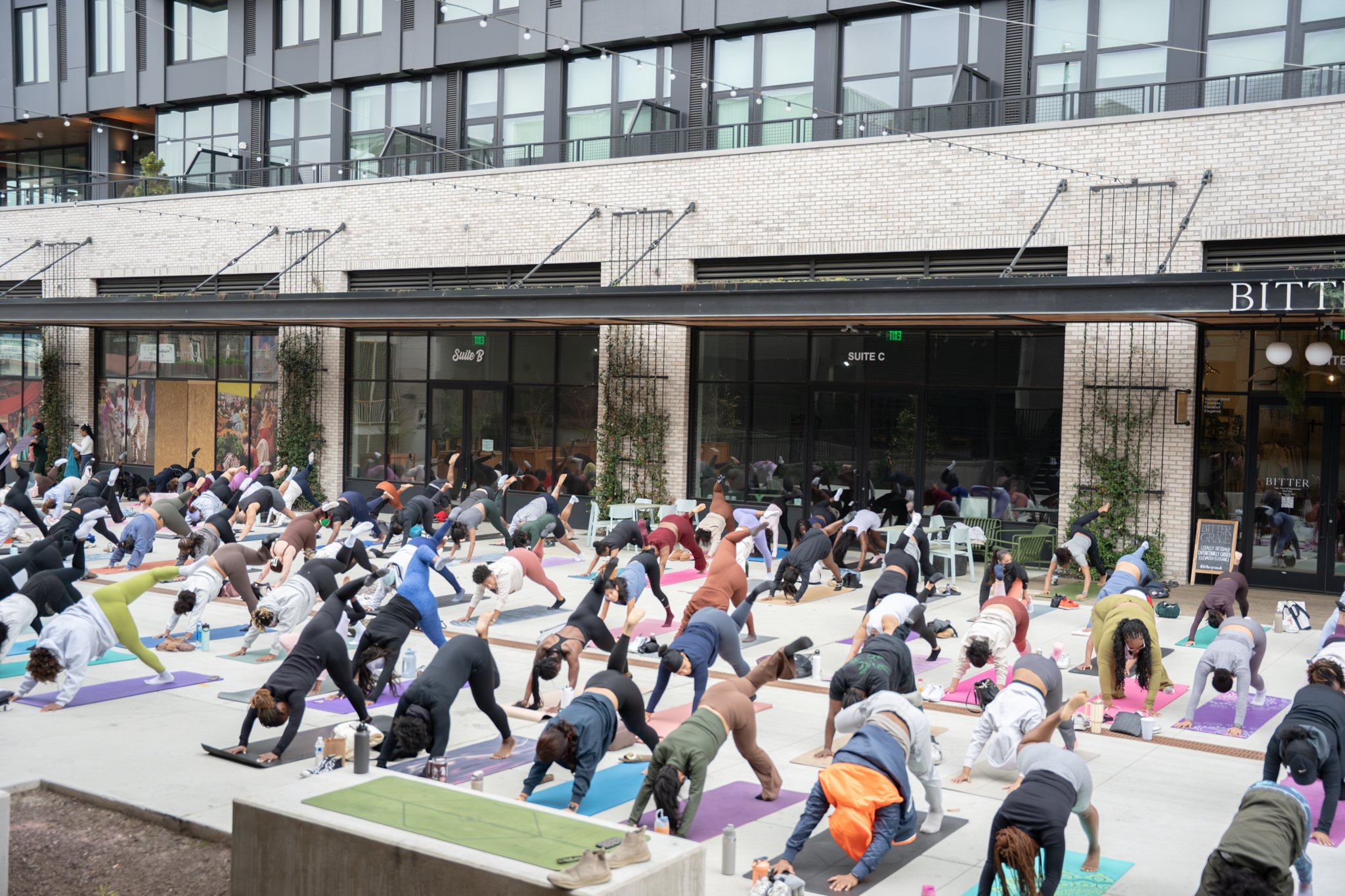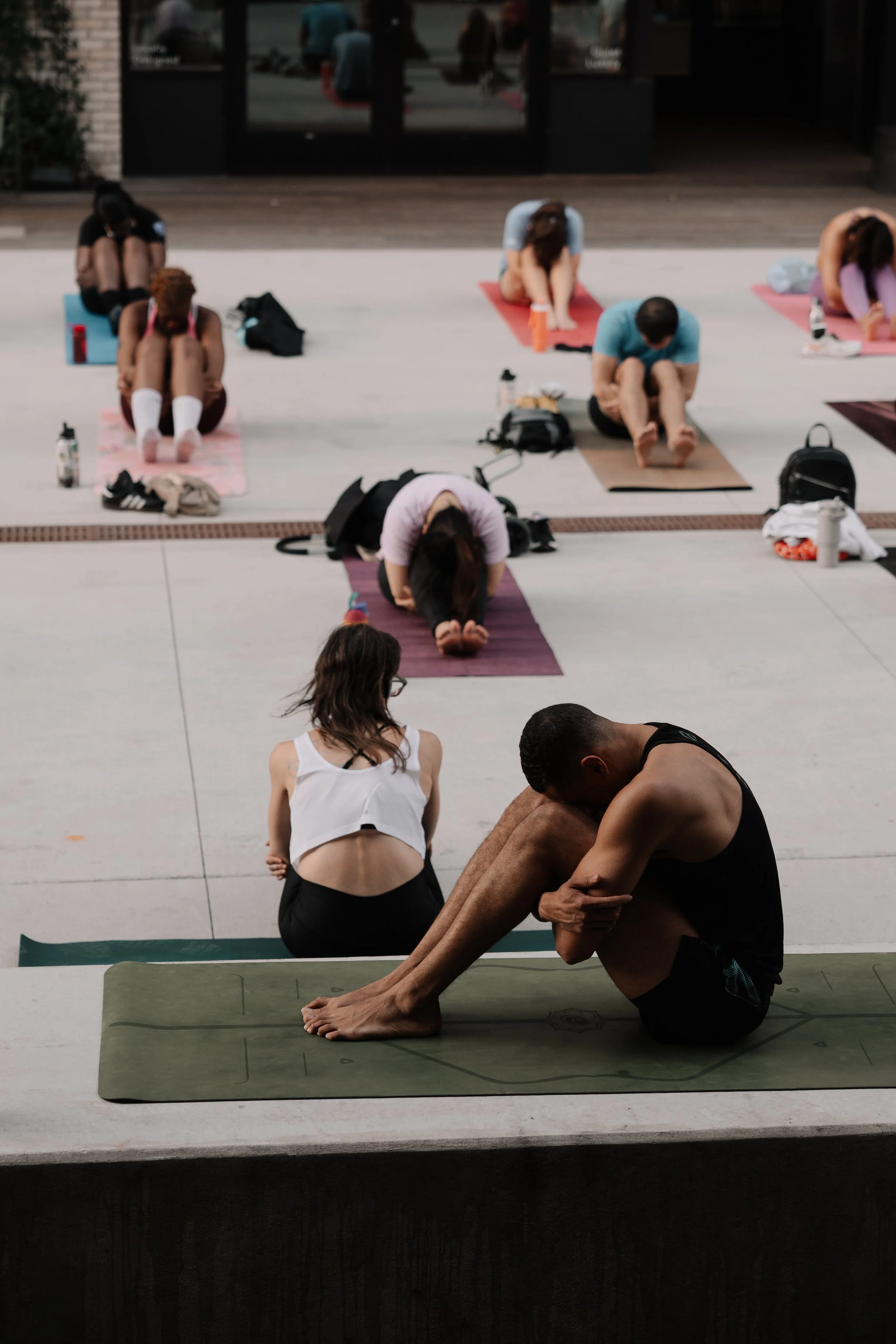Stephon J. Bradberry is a visionary strategic leader transforming how we build community, fortify individuals, and tend to the soul.
Stephon Je’von Bradberry, M.A., RYT‑200, is a multidisciplinary scholar, founder, educator, and yoga teacher based in Washington, D.C.
Born in Niagara Falls, New York, and raised in Fort Worth, Texas, his journey has led him to create sustainable ecosystems that empower individuals and communities to live well. Deeply rooted in a loving‑kindness ethic and guided by spiritual calling (his dharma), Stephon believes that through radical community care and embodiment, we can transform neighborhoods, states, nations—and the world.
Previously, Stephon served in D.C.’s Office of Neighborhood Safety and Engagement (ONSE), developing narrative and partnership strategies around violence intervention and healing-centered engagement. Before that, he shaped policy as a communications staffer in the U.S. House—working on climate, veterans’ health, and social equity.
Stephon is also the founder of FlowWell Yoga, a wellness initiative that brings yoga beyond studios using embodiment as a tool for justice and community as balm. In 2025, he was named a finalist for Best Yoga Teacher in D.C. by the Washington City Paper.
His curriculum, Yoga for Justice, explores how yoga philosophy and practice can sustain personal, collective, and societal liberation.
Stephon holds a B.S. in Integrative Studies (Political Science, International Studies, Sociology) from the University of North Texas; M.A. in Political Communication from American University.
While at UNT, Stephon served as President of the Black Student Union and Chief of Staff to the Student Government Association. At American University, he earned distinction for his thesis Black Witness: Remembrance and Remedy and worked in the Center for Diversity & Inclusion—coordinating cohort-based equity programs and anti-racist pedagogy.
A writer, teacher, bibliophile, proud poodle dad, and spiritual seeker, Stephon is driven by a sacred belief: we cannot be free, healed, or whole alone—or disembodied. His life and work invite us into the Clearing—a wide‑open, loving space—to show up for ourselves and each other.
"The point of this practice—life and living— is to get us free; and we cannot be free, healed, or whole, by ourselves or disembodied. Here now we go to build a world where other people can get free.”
“Our task, then, is to witness. To hold the line of truth and dignity without regard to favoritism and performances of power. We must use what we have to profess: things don’t have to be this way, and together, we can pursue those places and spaces where all people at all times are free, healed, and whole.”




